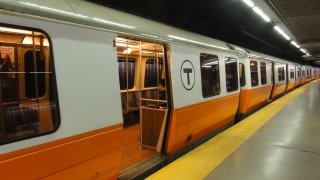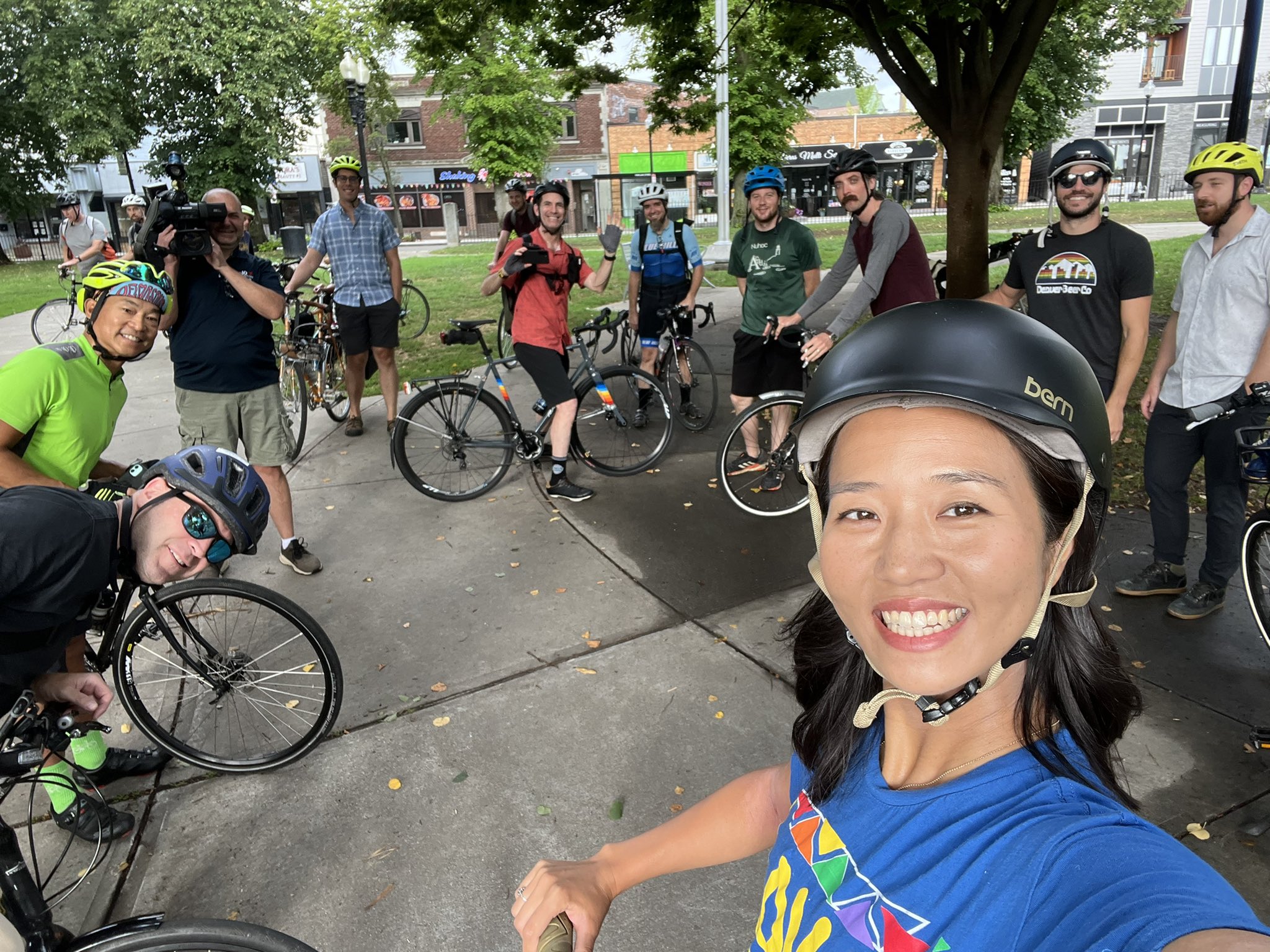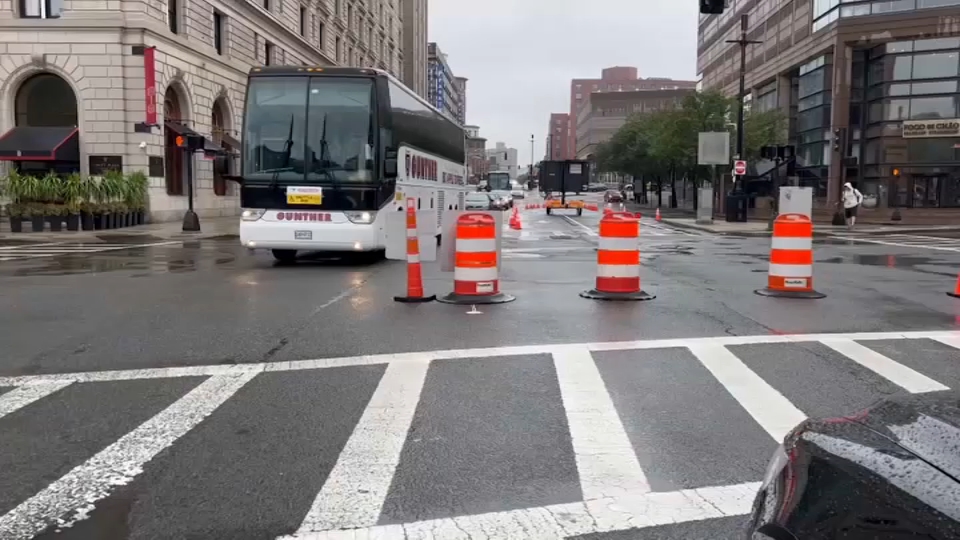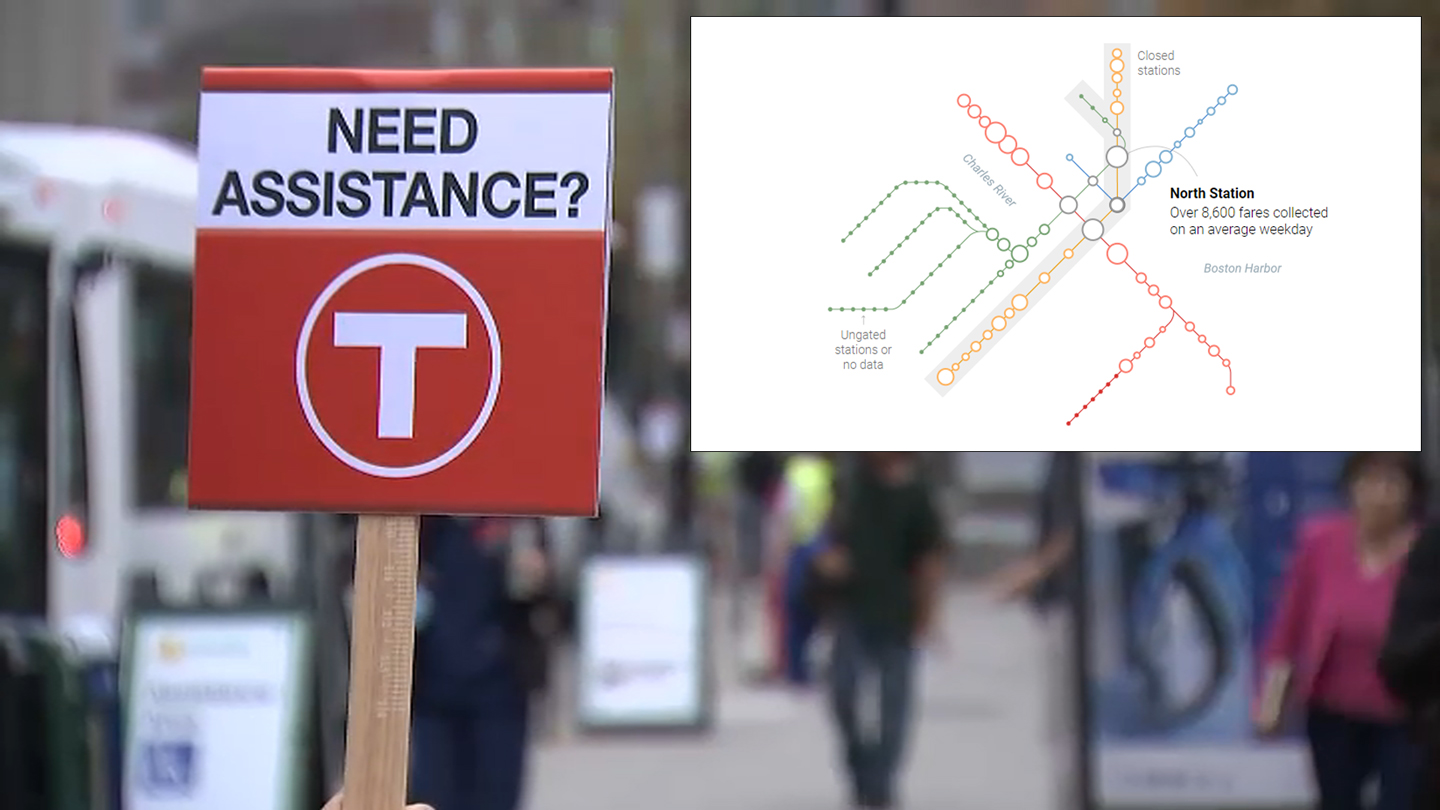
Alleging that the MBTA failed to properly examine the impacts of the Orange Line shutdown on communities of color, a civil rights group on Wednesday asked federal authorities to intervene amid what it described as an "illegal and discriminatory" change in service.
Lawyers for Civil Rights called for the T to undertake an equity analysis of the 30-day, end-to-end Orange Line closure, a step required ahead of any "major service change," and urged a group of federal officials to probe the agency's compliance with federal anti-discrimination law.
WATCH ANYTIME FOR FREE
Stream NBC10 Boston news for free, 24/7, wherever you are. |
Gov. Charlie Baker and his deputies at the MBTA have said they received the Federal Transit Administration's blessing to take Orange Line service offline for a month of maintenance, an unprecedented step prompted by an ongoing FTA investigation that has already flagged major safety deficiencies at the T.
But LCR's leaders argued that the MBTA failed to study whether the plan would create disproportionate harm to riders based on race, color or national origin, leaving issues that might have been detected ahead of time "addressed -- if at all -- in a haphazard, last-minute fashion."
Get updates on what's happening in Boston to your inbox. Sign up for our News Headlines newsletter.
"This exacerbates the harm of the closure on communities of color and low-income communities," LCR Executive Director Iván Espinoza-Madrigal and Litigation Director Oren Sellstrom wrote in a letter to MBTA officials. "For example, while the MBTA is relying heavily on communicating alternative routes to Orange Line riders, inadequate attention has been paid to the needs of those who are Limited English Proficient. While some signage is available in some other languages, this is inconsistent at best. Similarly, while the MBTA has relied heavily on personnel on-the-ground to direct riders to alternative modes of transportation, there is a distinct lack of such personnel who speak languages other than English."
During the closure of the Orange Line, which serves about 100,000 riders per day, the MBTA is running a fleet of shuttle buses, at no cost to riders, in legs covering subway stops north and south of downtown Boston. The MBTA will spend up to $37 million on the shuttles, an effort that MBTA General Manager Steve Poftak has said would tap into "every accessible bus east of the Mississippi."
Espinoza-Madrigal and Sellstrom said "obvious gaps in service" could have been avoided with greater analysis before the shutdown began. The T's decision to add another shuttle bus route and extra Silver Line service to connect Chinatown and Tufts Medical Center, announced one day before the shutdown began, was "only due to last-minute scrambling," they said.
More on the Orange line shutdown
An MBTA spokesperson did not immediately answer questions Wednesday morning about whether the agency performed a formal equity analysis before the shutdown or comment on the civil rights group's letter.
LCR said the issues "can only be expected to escalate in the coming weeks, as schools and colleges re-open."
The group, which has called for federal scrutiny of civil rights impacts stemming from MBTA decisions in the past, alleged five other instances of "inequitable conduct," including the cancellation of late-night bus service in 2016 and the May 31, 2020 shutdown of several downtown Boston stations in the immediate wake of racial justice protests.
In addition to its message to MBTA officials, LCR sent another letter to the U.S. Department of Transportation, the FTA and U.S. Attorney Rachael Rollins asking them to launch a review of the T's compliance with a section of federal law banning discrimination in agencies that receive federal funding known as Title VI.
"It appears the FTA's most recent Title VI Compliance Review of MBTA was conducted in 2011. In light of MBTA's pattern of inequitable conduct over recent years, LCR respectfully requests that the federal government, including the FTA, conduct another Title VI Compliance Review of MBTA," the group wrote. "Transportation equity has long been a critical component (of) the civil rights struggle, and LCR commends the leadership of the Department of Transportation and U.S. Attorney's Office and your commitment to safeguarding civil rights."
An FTA spokesperson did not immediately comment Wednesday morning, and spokespeople for USDOT and Rollins's office could not be reached immediately.
Baker, Poftak and Transportation Secretary Jamey Tesler announced on Aug. 3 that the entire Orange Line would stop running a bit more than two weeks later, from 9 p.m. on Aug. 19 through Sept. 18.
The FTA's safety management inspection, which flagged a massive backlog of delayed maintenance as a hazard, served as the "impetus" for that dramatic step, Poftak said.
"We wouldn't do this without the FTA's permission," Baker said at the time.
FTA officials expect to complete their probe and publish a final report by the end of the month.




